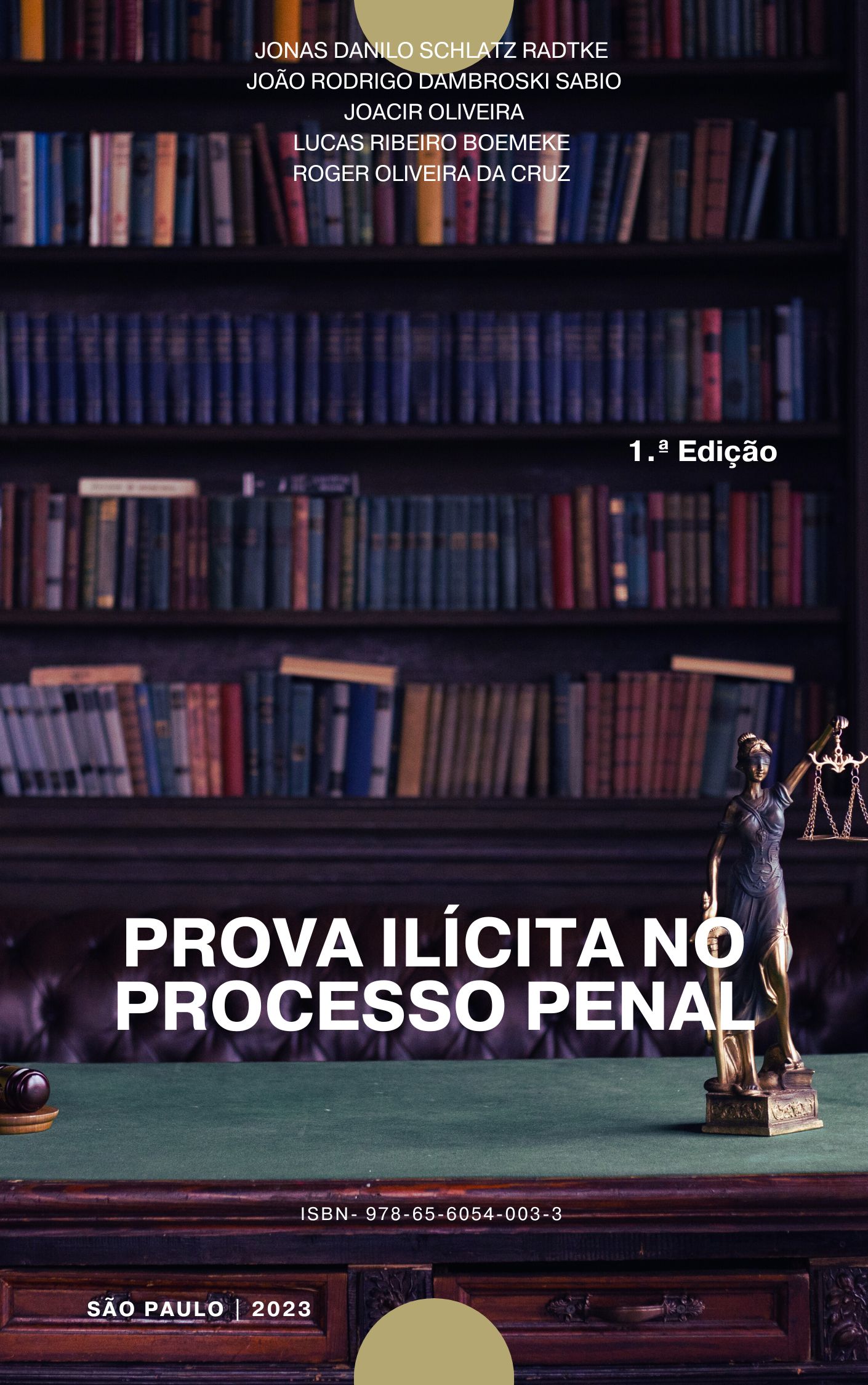UNLAWFUL EVIDENCE IN THE CRIMINAL PROCESS
Keywords:
Brazilian criminal proceedings. Unlawful evidence. Principle of Proportionality. Inapplicability.Abstract
It is with great satisfaction that we present the digital book "Illicit Evidence in Criminal Procedure", a comprehensive and in-depth analysis of an extremely relevant topic in the field of Criminal Law. This book sets out to explore and clarify the complex aspects of illicit evidence in the context of criminal proceedings, providing an essential guide for both students and legal professionals who wish to understand the nuances of this important topic.
The study of illicit evidence is fundamental in Criminal Law, as the validity and admissibility of evidence play a crucial role in the search for truth and in guaranteeing individual rights in the criminal process. This work is divided into three chapters that will focus on different aspects of this concept.
In its initial chapter, "What is Illicit Evidence", we will explore the essential foundations and concepts related to illicit evidence. We will address the definitions, types and characteristics of evidence considered illegal in criminal proceedings. Furthermore, we will examine the ethical and legal implications of using illicit evidence, highlighting how these practices can affect the fundamental rights of the accused and the credibility of the justice system.
Chapter II: Principles and Rules, delves into the analysis of the rules and principles that govern the admissibility of evidence in criminal proceedings. In the meantime, we will discuss in detail the principles of lawfulness, acquisition of evidence, proportionality and the presumption of innocence, among others. We will also cover the specific rules that outline the admissibility of illicit evidence and the exceptions that may allow its use in certain circumstances.
In its third chapter, "Specific Points of Illicit Evidence", we will further deepen our understanding of the topic, exploring specific and challenging cases that arise in the context of illicit evidence. We will investigate issues such as illicit proof by derivation, mitigation techniques, the fruit of the poisoned tree theory, and other complex topics with a direct impact on legal practice.
This work not only offers a comprehensive theoretical analysis of illicit evidence, but also provides a practical approach, with examples and real cases that help in the understanding and application of the concepts discussed. In addition, the most recent court decisions and changes in legislation that directly affect the issue of illicit evidence in criminal proceedings will be addressed.
We hope that this digital book will be a valuable source of knowledge and reflection for all who wish to deepen their understanding of illicit evidence in criminal proceedings. After all, the search for justice and the protection of individual rights depends, for the most part, on the correct treatment of evidence in the legal system.
Happy reading and may this work contribute to the enrichment of your legal knowledge.
The authors,
Downloads

Downloads
Published
How to Cite
License
Atribuição CC BY
